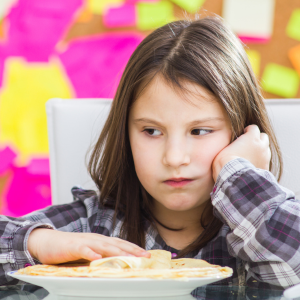Understand How Teens Think
 We want our children to make wise, well-reasoned decisions. Our desire to keep them safe drives our need to shape those decisions. How we talk to our tweens and teens can make the difference between whether they absorb our lessons or rebel against them.
We want our children to make wise, well-reasoned decisions. Our desire to keep them safe drives our need to shape those decisions. How we talk to our tweens and teens can make the difference between whether they absorb our lessons or rebel against them.
Read more »


 Dialectical Behavior Therapy, or DBT, focuses on teaching people skills to manage intense emotions, cope with challenging situations, and improve their relationships. It encourages people to learn and use mindfulness training in practical ways.
Dialectical Behavior Therapy, or DBT, focuses on teaching people skills to manage intense emotions, cope with challenging situations, and improve their relationships. It encourages people to learn and use mindfulness training in practical ways.


 In this Voices of Compassion episode, we discuss the sensitive but critical topic of teen suicide. In our conversation with CHC Doctoral Psychology Intern,
In this Voices of Compassion episode, we discuss the sensitive but critical topic of teen suicide. In our conversation with CHC Doctoral Psychology Intern, 
 “Post-graduation depression” describes depressive symptoms that occur after a person finishes college or university. Although it is not a medically recognized term, it is an experience many young adults may relate to.
“Post-graduation depression” describes depressive symptoms that occur after a person finishes college or university. Although it is not a medically recognized term, it is an experience many young adults may relate to. 
 Conduct disorder is the mental health condition that is diagnosed when children or teens exhibit serious aggressive and antisocial behaviors that violate rules or rights of others, with little to no guilt or concern regarding their actions.
Conduct disorder is the mental health condition that is diagnosed when children or teens exhibit serious aggressive and antisocial behaviors that violate rules or rights of others, with little to no guilt or concern regarding their actions. 
 Parents, have you talked to your kids about vaping nicotine yet?
Parents, have you talked to your kids about vaping nicotine yet?
 What does an appropriate and reassuring conversation with children about a cancer diagnosis look like?
What does an appropriate and reassuring conversation with children about a cancer diagnosis look like?
 COVID-19 taught most people that the line between tolerable and toxic stress – defined as persistent demands that lead to disease – varies widely. But some people will age faster and die younger from toxic stressors than others.
COVID-19 taught most people that the line between tolerable and toxic stress – defined as persistent demands that lead to disease – varies widely. But some people will age faster and die younger from toxic stressors than others.

